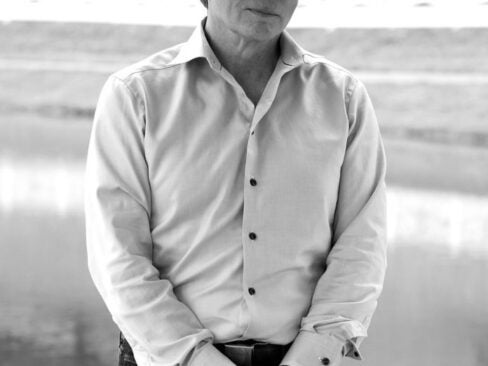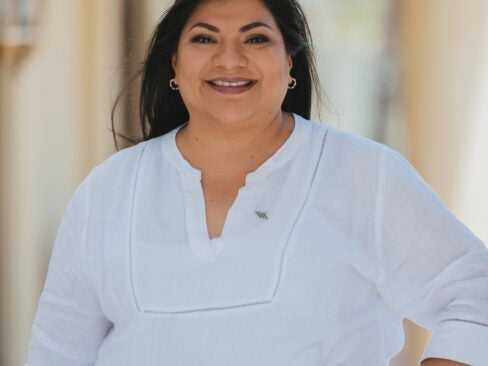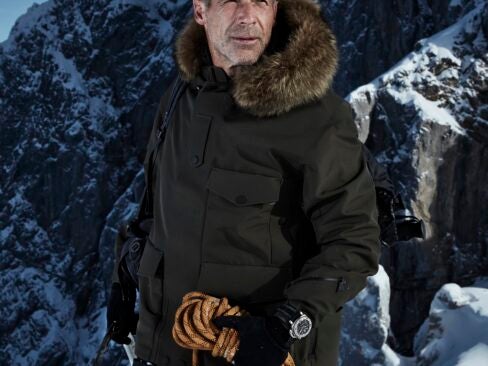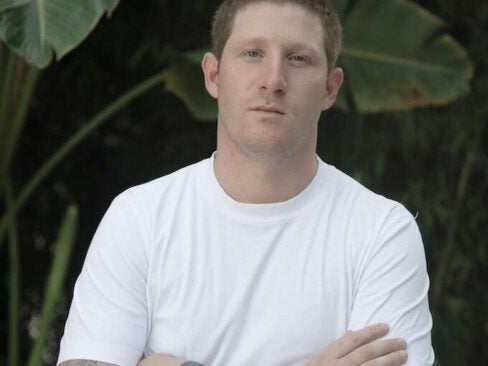Yet to turn 40 with impressive credentials as boss at Jaquet Droz for Swatch Group and now independent Romain Jerome, Manuel Emch always has an eye on the big picture. Elite Traveler Editor-in-Chief Douglas Gollan caught up with the rising star during Baselworld 2013 to talk about possible dark clouds ahead for the industry, share of wrist and what it has taken to build two successful companies.
Elite Traveler: How’s the fair going?
Manuel Emch: Business has been good but I have to see all the figures because a lot of people give the final order after Basel. I always said when the watch is paid, made and delivered it is the real thing.
ET: What have been the highlights?
ME: People talk about the problems in Europe, however we opened a lot of new markets. I think we are going to finalize Greece, Denmark, the Czech Republic, Spain, Italy and Portugal. It’s surprising but speaks to what we are doing with Romain Jerome.
ET: What’s your overall assessment?
ME: There weren’t as many American retailers as in the past, and in Asia there is a lot of nervousness. I am concerned that we are in an unstable worldwide environment. We are seeing sales plateau as an industry. Access to distribution is becoming more difficult for us independents, so the name of the game isn’t just supply.
ET: What are you seeing in your crystal ball?
ME: As an entrepreneur I am a risk taker, but I am sensitive to putting my nose in the air, and I smell change. When you look at what Apple, Microsoft and Samsung are all working with huge teams developing smart watches it should be a cause for concern. If only five percent of iPhone users bought an iWatch that would be around $3 billion in revenue. That’s bigger than Omega. The reality already is young people less and less wear watches, and if you wear a smartphone on your wrist, you won’t wear a watch. For the high end I don’t see an issue. I don’t imagine you will go into a charity ball with a wrist phone. The high-end consumer will still buy classical watches and watches that are innovative and make a statement. But the general consumer who has to choose between spending a thousand on a smartwatch or a mechanical watch, I’m not sure how that will shake out.
ET: What are your concerns for Romain Jerome?
ME: The market is okay from our perspective. We are continuing to see consolidation because a lot of the independent companies are barely profitable. In the watch industry there is a lot of investment to build brands, and it is not from one day to the other. You need to have lots of investment in research and development. There are too many players for the market.
ET: You were recently cited as having led two of the industry’s five most impressive turnarounds. What’s the difference between doing it in a big group versus on your own?
ME: Jaquet Droz went from 500,000 Swiss Francs to over SFR 30 million and from three people to 80. More than turnaround specialist, I consider myself as a brand builder. With Swatch Group I had access to distribution, which I totally underestimated when I came to Romain Jerome. Sometimes it’s an advantage to be independent because you don’t have to work with suppliers within a group. Of course it’s nice to have a cash machine in your backyard. Even if you don’t need a lot of cash, you sleep so much better at night. On the other side you spend a big part of your time in politics especially as your project develops and you get noticed in the group.
ET: So is there a magic button you have?
ME: I came in and there was no button. When I arrived (at Romain Jerome) in January 2010, all of the production was outsourced to BNB. I called on my first day and said I wanted to come and look at the production. They said, ‘You better come quick because tomorrow we are going to lock the doors.’ That was a harsh first day. I rented a van at Hertz, taking cardboard boxes (with watch components) out of their offices to the truck, and drove back to Geneva. I didn’t sleep for three months. I said to myself, ‘I had made a really dumb decision.’ But when I stopped feeling sorry for myself, I regained my perspective which is, ‘don’t think too far ahead, just do the work and keep a positive attitude.’
ET: Would you like to be at a big brand at a big group someday?
ME: Sometimes I say, when I see what we’ve done with nothing, it would be nice to be head of a watch company with multi-hundred million-dollar turnover. It’s easy to say with more resources, ‘I could do much more.’ Then on the other side, even if we don’t have the visibility or recognition, is the capacity to say, ‘I am my own boss and my investors trust me is rewarding.’
ET: So the big groups aren’t all wine and roses?
ME: At the big groups, they want you to work with in the group. The big group wants you to use their manager in Country X for distribution. They say, ‘why aren’t you using him?’ My answer is ‘my guy sells watches.’ Then you get into this endless back and forth about who can do it better. The more you do it by yourself successfully, the more you irritate people.
ET: Why is Romain Jerome doing so well?
ME: What is unique with Romain Jerome is it is about emotional watch making and story telling. We are producing emotional timepieces people can connect to.
We are well positioned because we are in prestigious segment. We make people dream. Each watch tells a story beyond just craftsmanship and mechanical know how.
ET: Any closing thoughts?
ME: In the jungle, it’s not the most intelligent or strongest who survive. It’s the one that has the capacity to adapt and change.










